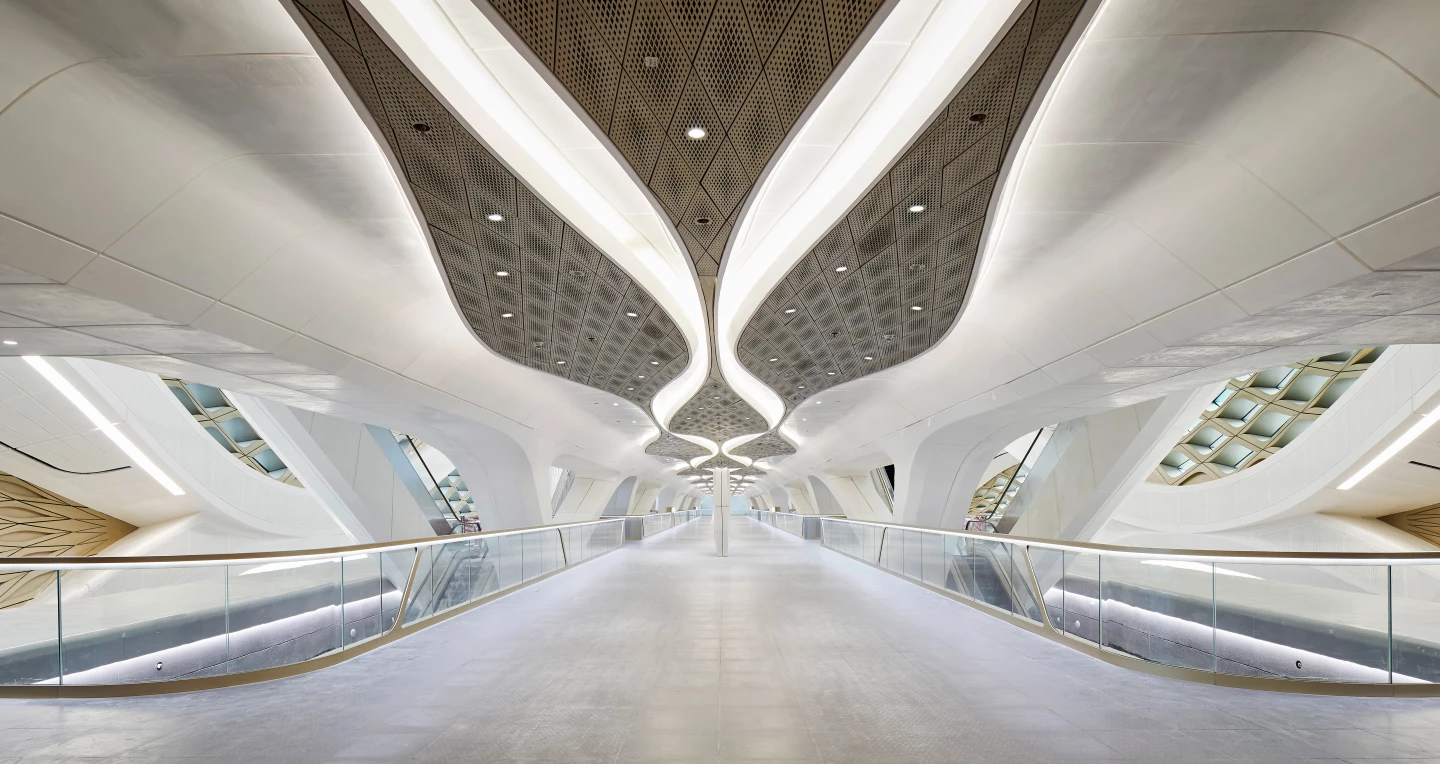Since Saudi Arabia is aiming to transform its country into a futuristic tourist paradise with projects like the Line and Mukaab, it's going to need to seriously upgrade its transportation network. As part of this endeavor, authorities have inaugurated a huge new driverless metro system which is hailed as the longest in the world.
The Riyadh Metro began operation on December 1, with the opening of three of its lines (another line is opening in January with two more to follow soon after). It has a total length of 176 km (109 miles) and connects key districts, business centers, and cultural landmarks throughout Saudi Arabia's capital city.
With an eventual capacity of 3.6 million daily passengers once fully complete, the train network is expected to reduce road traffic significantly throughout Riyadh and correspondingly reduce CO2 by some 12.5 million tons (roughly 10.8 million tonnes), annually.
It features a total of 85 metro stations. Most notable of these is Zaha Hadid Architects' King Abdullah Financial District (KAFD) Metro Station, pictured. The station features a carefully calculated layout that's aimed to make it easy for passengers to navigate and its exterior comprises an eye-catching latticed curving form that's designed to take the sting out of the harsh summer heat in the Saudi capital.

A total of 69 Alstom Metropolis trains and 47 Innovia Metro trains – all electric – are being used to move people around. They are arranged into three classes: first class, family class and singles class, and will include ergonomic seating, LED lighting, air-conditioning, and a passenger information system. As mentioned, they are also automated and have been used as part of driverless transit systems in Budapest, Hungary, Sydney, Australia, and Taipei, Taiwan.
"The trains are driverless," explains Alstom, which provided the rolling stock for the project. "The train movements are protected by a state of the art signaling system controlling the speed of the trains, ensuring smooth and safe operations including automatic opening of the train doors. The fully air-conditioned stations are equipped with platform screen doors also preventing people to access the track. The trains are also equipped with an advanced passenger information system delivering real time information to the passengers through screens and loudspeakers on board the train and on the station platforms."
Alongside its massive Neom projects, Saudi Arabia also hopes to play host to the FIFA World Cup soccer tournament in 2034.








